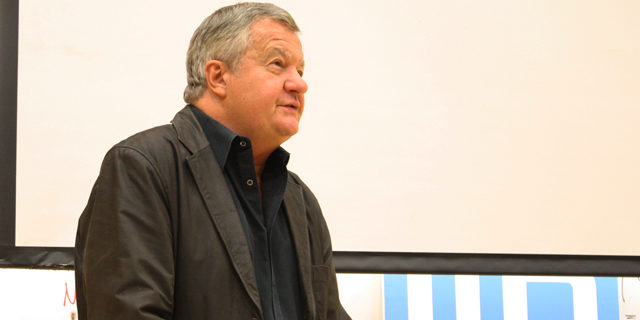News over noise
Tony Burman gestures to the projector screen to his left, and it floods with riot footage from the Egyptian revolt against former president Hosni Mubarak. Al Jazeera’s cameras captured scenes that make Toronto’s G20 look like a playground squabble: mobs trying to topple a police van into the Nile, civilians shot while carrying bodies out of the mob’s warpath, ecstatic crowds in Tahrir Square when Mubarak announced his resignation.
Burman, the former head of Al Jazeera English and, before that, CBC News, presented a lecture titled “News Over Noise in the Age of Al Jazeera” as a part of Ryerson’s International Issues discussion series on January 18. Speaking without a microphone, Burman captivated the hall full of students and faculty, recounting memories of working as a broadcast journalist in the Middle East. He contrasted highlights such as witnessing Nelson Mandela being freed from prison with low points, like the ramifications of the American government turning on Al Jazeera during the war on Iraq. Burman stands firmly opposed to the superficial coverage of Eastern affairs generated by most of the American media outlets, and says his goal is to help his audience understand the whole story, not just a slice.
Since its 2006 launch, the English branch of the news network has given a voice to the voiceless in a part of the world where the media are predominantly comprised of what Burman calls “state-run propaganda machines.” The Al Jazeera effect has confirmed Burman’s belief that fair and fearless media have the power to trigger global change.
Lead image via Matthew Wright














